Faculty, Staff, Students and Alumni
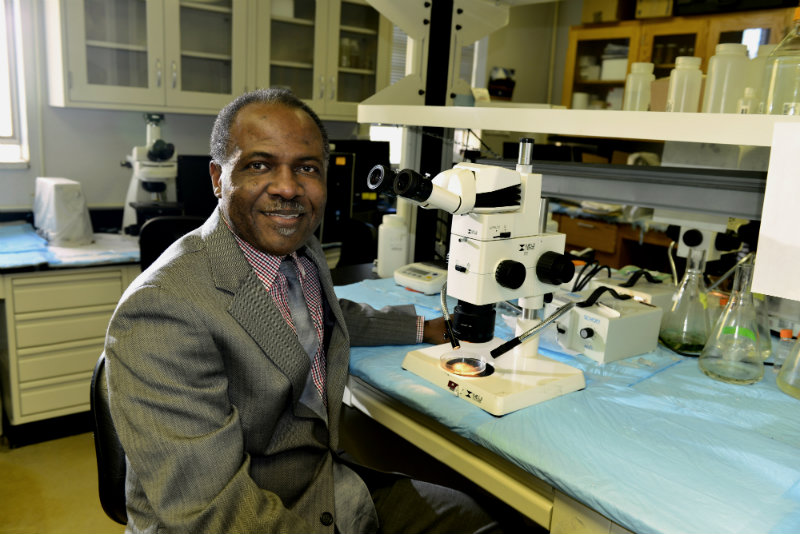
Faculty
LMRCSC Faculty
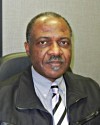
Paulinus Chigbu, Ph.D. (University of Maryland Eastern Shore)
Professor of Fisheries Science and LMRCSC Director
Bio: Dr. Chigbu has been Director of the LMRCSC since 2006. He received his B.S. (Honors) and M.S. degrees in Zoology (concentration in Hydrobiology) from the University of Benin, Nigeria and his Ph.D from the University of Washington School of Fisheries. Since coming to UMES, he has established numerous programs for research and education in the marine sciences which he also directs, including the NSF CREST Center for the Integrated Study of Coastal Ecosystem Processes and Dynamics in the Mid-Atlantic Region (CREST-CISCEP) and a NSF Research Experiences for Undergraduates site in Marine and Estuarine Science. He is also Director of the NSF-funded Professional Science Masters program in Quantitative Fisheries and Resource Economics at UMES. Dr. Chigbu’s primary research interests are: fisheries and zooplankton ecology, particularly the influence of variations in climatic factors on water quality and biota, and trophic dynamics in marine and freshwater environments.
Curriculum Vitae
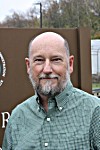
Bradley Stevens, Ph.D. (University of Maryland Eastern Shore)
Professor and LMRCSC Distinguished Research Scientist
Bio: Dr. Bradley Stevens received his Ph.D in Fisheries Science from the University of Washington School of Fisheries in 1982. His research interests are the ecology and early life history of crustaceans and molluscs, with an emphasis on reproductive biology, postlarval settlement, growth, and feeding. He uses a variety of tools including histology and image analysis to measure growth of eggs, larvae, and juveniles. He has experience in aquaculture and stock enhancement of crustaceans, including king crabs and lobsters. He also specializes in sampling methods to estimate abundance of marine populations, especially shellfish (crabs, mollusks), and the impacts of fishing on their populations, particularly bycatch, discard mortality, and impacts of derelict fishing gear. He often uses in-situ technology for this work, including submersibles and ROV’s, and built six video camera sleds for undersea research. He led two cruises to explore Gulf of Alaska seamounts with the submersible Alvin in 1999 and 2002. In 2003-04 he discovered and surveyed the wreck of the Russian Barque Kad’yak (1860), the only shipwreck from the Russian Colonial Period and the oldest known wreck site in Alaska.
Website
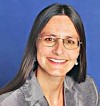
Elizabeth Babcock, Ph.D. (University of Miami RSMAS)
Associate Professor, Marine Biology and Fisheries and LMRCSC Project Co-Director
Bio: Dr. Beth Babcock is a fisheries biologist with a Ph.D. from the University of Washington, School of Fisheries whose dissertation research focused on the Oregon trawl fishery. She spent five years at the Wildlife Conservation Society in New York, conducting scientific analyses in support of conservation efforts for tuna, swordfish, marlins and sharks. Since 2003, she has been on the faculty of the University of Miami’s Rosenstiel School. Her research focuses on analyzing fisheries data to determine how to make fisheries more sustainable, particularly for vulnerable species like sharks. She uses and teaches Bayesian statistical methods for fisheries stock assessment and decision analysis. She focuses on species and fisheries for which conventional fisheries data are lacking, and, with limited data, has developed methods to determine what levels of fishing are sustainable. For example she has used monitoring data from inside and around marine protected areas to determine whether fish populations are overexploited. She is also a collaborator on a 12 year field research project studying abundance, and movement behavior of sharks at Glover’s Reef atoll, Belize.
Website

Daniel Benetti, Ph.D. (University of Miami RSMAS)
Professor, Marine Biology and Fisheries
Bio: Dr. Daniel Benetti is a Professor and the Director of Aquaculture at the University of Miami’s Rosenstiel School of Marine and Atmospheric Science, where he was the Chairman of the Division of Marine Affairs and Policy from 2003 to 2008. He has over 30 years experience in aquaculture worldwide. Besides his academic responsibilities at RSMAS – where he teaches the 3 graduate level core courses of the Aquaculture Track degree – he carries out scientific and R&D projects on technology development and environmental issues related to aquaculture. He specializes in hatchery and open ocean growout technologies of marine finfish species, including, most recently, cobia, Seriola (yellowtail jacks), snapper, tuna, mahimahi and flounder. He has published over 100 articles in aquaculture science and technology, has extensive experience with the industry and has been a consultant for the private and government sectors in Latin America, U.S., Europe, Asia, Caribbean and Australia, where he has partnered with the government and the industry to spearhead advanced technology for hatchery and sustainable offshore aquaculture development. He is the scientific coordinator of several offshore aquaculture projects and operations in the US and abroad. He is a consultant for technology transfer of marine fish hatchery and growout for the government and private sector in a number of countries on 5 continents and conducts project development for sustainable aquaculture and environmental monitoring programs with focus on open ocean and coastal mariculture operations. His work is centered on innovative research to ensure that seafood production through mariculture is wholesome, environmentally sustainable and economically viable.
Website

Susan Capalbo, Ph.D. (Oregon State University)
Professor and Chair, Applied Economics
Bio: Dr. Capalbo received her Ph.D in Agricultural Economics from the University of California-Davis, with a specialty in resource and marine economics; her dissertation involved analyses of the policy and management implications for a transboundary fishery (PNW Halibut fishery). Dr. Capalbo’s current teaching and research program focuses on the interface of environmental and resource economics, ecosystem services, and applied policy. For the past decade, she has focused on quantifying the opportunities for carbon offsets in resource production systems and integrating science and economics to address sustainable resource, environmental, and climate change policies in developed and developing countries. The valuation of ecosystem services and changes in natural capital, productivity, and sustainability of resource policies are relevant to issues associated with marine spatial planning, marine reserves, coastal community development and infrastructure; her current students are engaged in research that integrates economic policy models with biophysical models and addresses optimal resource management under uncertainty and irreversibilities. She currently teaches graduate and undergraduate courses in microeconomic theory and environmental and resource economics and is involved in interdisciplinary graduate programs and research projects at OSU.
Website
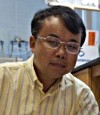
Feng Chen, Ph.D. (University of Maryland Center for Environmental Science)
Associate Professor, Institute of Marine and Environmental Technology
Bio: Dr. Chen received his Ph.D. in Marine Microbial Ecology in 1995 from the University of Texas at Austin. He has published more than 60 scientific papers and book chapters, covering both basic and applied aspects of marine microbiology and microbial ecology. Using a variety of molecular tools, his laboratory investigates community structure and population dynamics of marine microorganisms in the aquatic environment like Chesapeake Bay.
Website

J. Sook Chung, Ph.D. (University of Maryland Center for Environmental Science)
Associate Professor, Institute of Marine and Environmental Technology
Bio: Dr. Chung received her Ph.D. in Entomology in 1991 from Texas A&M University. She has studied the mechanisms by which the endocrine system regulates growth, development and reproduction in decapod crustaceans using molecular biological approaches. Her work has given definition to the crustacean CHH/VIH/MIH family of hormones. Dr. Chung’s work on endocrine triggers for shedding in the soft shell industry has implications for the management and bioeconomics of blue crab fisheries in the Chesapeake Bay. Recently, Dr. Chung has initiated a study of the effects of the Gulf Oil spill on reproduction of grass shrimp and blue crab.
Website

Tara Cox, Ph.D. (Savannah State University)
Assistant Professor, Marine Science
Bio: Dr. Tara Cox is an Assistant Professor in the Marine Science Program at Savannah State University with a focus on conservation biology and ecology of large marine vertebrates. Cox began her career in marine science studying dolphin behavior in Baja California. She then received a Master’s in Coastal Environmental Management and Ph.D. in Ecology from Duke University. She gained policy experience as the Assistant Scientific Program Director at the U.S. Marine Mammal Commission in Bethesda, Maryland. She also taught at Pfeiffer University and conducted post-doctoral research at Duke University’s Center for Marine Conservation. Her research has always centered on ecological research that has direct applications to conservation of long-lived marine vertebrates. Specifically, her dissertation research focused on harbor porpoises in the Gulf of Maine and her post-doctoral work involved collaborating with global researchers on assessing bycatch of marine mammals, sea turtles, and seabirds. More recently, her graduate students are conducting research in such diverse areas as the policy of oyster reef restorations and foraging ecology of bottlenose dolphins.
Website

Benjamin Cuker, Ph.D. (Hampton University)
Professor, Marine and Environmental Science
Bio: Dr. Cuker is a graduate of the University of Michigan where he received a BS in Natural Resources, and a MS in Resource Ecology. He received his PhD from North Carolina State University in Zoology with a minor in Ecology. He created the American Society of Limnology and Oceanography (ASLO) Multicultural Program, Multicultural Students at Sea Together (MAST), and the Hall-Bonner Program for Minority Doctoral Scholars in the Oceans Sciences. His current research includes limnology of turbid lakes, estuarine ecology and hypoxia. Dr. Cuker is the faculty advisor to the Hampton University sailing team.
Website

Carla Curran, Ph.D. (Savannah State University)
Associate Professor, Marine Science
Bio: Dr. Mary Carla Curran is an Associate Professor in the Marine Science Program at Savannah State University whose area of expertise is in fish biology and marsh ecology. However, her interests span these areas as well as those involving the impact of human activities (particularly construction and contaminants) on estuaries, invertebrates, and marine education. Curran began her undergraduate training in the Marine Science program at University of South Carolina where she graduated Magna Cum Laude. She then earned a B.S. Honors degree in Zoology as a Fulbright Scholar at Victoria University of Wellington in New Zealand. Her doctoral work in Biological Oceanography was completed at the Massachusetts Institute of Technology/Woods Hole Oceanographic Institution. She has held two postdoctoral positions, one at Rutgers University with Dr. Kenneth W. Able and another supported by the National Science Foundation and NATO at the Stazione Zoologica di Napoli in Italy with Dr. Flegrea Bentivegna. Before joining the faculty at SSU, Dr. Curran taught as an Assistant Professor at the University of South Carolina at Beaufort. Her current projects are focused mainly in estuarine habitats in coastal Georgia and South Carolina and include the use of estuaries by flatfishes, behavior and movement patterns of blackcheek tonguefish and contaminant loading in flounder in coastal Georgia. Her graduate students have conducted research related to her primary interest in flatfish ecology, but also a wide-array of other topics: prevalence of parasitism and behavioral changes associated with isopod parasites on grass shrimp, the effect of ray feeding pits on meiofauna, life history of cobia, bycatch in crab traps, and designing K-12 activities related to marsh ecology. She is actively involved in the Southeastern Estuarine Research Society (1998-present) as Coordinator of Student Travel Awards and is also a member of ASLO (2004-present), SETAC (2003-present), and the Estuarine Research Federation (2001-present).
Website

Maurice Crawford, Ph.D. (University of Maryland Eastern Shore)
Associate Professor
Bio: Maurice Crawford began his career as a Fish Ecologist studying the age and growth of fishes with the National Oceanic and Atmospheric Administration’s (NOAA) Northeast Fisheries Science Center in Woods Hole, MA. Dr. Crawford holds a B.S. in Biology from the University of Massachusetts at Dartmouth. He received his Master’s degree in Ecology from Rutgers University where he studied the population genetics of weakfish. He also worked at the University of Georgia investigating factors regulating the organization of stream fish assemblages.
Dr. Crawford received his Ph.D. from North Carolina State University where he examined the effects of seagrass spatial heterogeneity on fishes. He was awarded a post-doctoral fellowship with the American Association for the Advancement of Science (AAAS). As an AAAS Science and Diplomacy Fellow he worked with the US Agency for International Development (USAID) providing technical assistance on USAID’s Climate Change Initiative. He currently is an Associate Professor at the University of Maryland Eastern Shore where he also serves as the Deputy Director of the Living Marine Resources Cooperative Science Center. His research interests include estuarine habitat conservation/restoration; the dispersal and movement of organisms; and the interplay between science and policy.
Curriculum Vitae
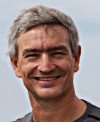
David Die, Ph.D. (University of Miami RSMAS)
Associate Professor and LMRCSC Project Co-Director, RSMAS
Bio: Dr. David Die received a B.S. in Zoology from the Universidad de La Laguna in Spain and a Ph.D. in Marine Living Resources from the University of Miami. He develops mathematical and statistical models (both for prediction and estimation) to support assessment of fishery resources and quantitative evaluation of the performance of natural resource management. He specializes in developing an understanding of the mechanisms that are key to the sustainability of fisheries. He has researched fisheries worldwide (Oceania, Asia, Latin America and Africa) and some of his research has been instrumental in the development of major management changes (fishing closures, fleet capacity reductions) in several fisheries. Presently, he is focusing on the assessment of tuna, billfish and reef-fish fisheries in the Atlantic. He has current collaborative research links with scientists in fishery Institutions all around the world. He is the Associate Director of the Cooperative Institute of Marine and Atmospheric Sciences at the University of Miami, and a Technical Coordinator for the Center for Independent Experts, one of the main vehicles used by NMFS to oversee the quality of its science.
Website
Deidre Gibson, Ph.D. (Hampton University)
Associate Professor and Chair, Marine and Environmental Science and LMRCSC Project Director, HU
Bio: Dr. Deidre Gibson is the Chair of the Department of Marine and Environmental Science at Hampton University. She earned her B.S. in Oceanography from the University of Washington, and her Ph.D. in Marine Science from the University of Georgia/Skidaway Institute of Oceanography. She is a broadly-trained biological oceanographer with research interests centered on the trophic ecology, reproductive biology, and population dynamics of gelatinous zooplankton. Her research utilizes multidisciplinary and comparative approaches that integrate laboratory, field, and specimen-based techniques, using microscopy, molecular, and husbandry tools to provide insights into relationships between form, function, and the environment. Dr. Gibson is the Director of numerous grants and funded Diversity programs, including the LMRCSC, DREAMS I & II and two Centers for Ocean Science Education Excellence (COSEE). Dr. Gibson currently serves as a member-at-large, and ex-officio chair/member of the Diversity Committee on the Board of the American Society of Limnology and Oceanography (ASLO); she is the first African American scientist to ever serve on the board of this prestigious organization.
Website
Patricia Goslee, Ed.D. (University of Maryland Eastern Shore)
Assistant Professor, Education Lead for the Living Marine Resource Cooperative Science Center
Bio: Dr. Patricia Goslee joined the University Of Maryland Eastern Shore Department of Education as a lecturer in August, 2008. Dr. Goslee was appointed the Education Lead for the Living Marine Resource Cooperative Science Center in August, 2012. Since then, she has worked collaboratively with Dr. Andrea K. Johnson to facilitate two grant funded summer programs for high school students and teachers. The Student Experiential Enrichment Learning Program (SEEL) is designed for high school students and gives participants an opportunity work closely with science professors in the Department of Natural Science on a specific research project. The Coastal Marine Science Teacher Workshop (CMARS) is a professional development opportunity for teachers, exposing them to cutting edge research on the Coastal Bays. As the Education Lead, Dr. Goslee shares program information with professional development partner schools in attempt to spark students’ in science. Dr. Goslee’s research interests are centered on molding future teachers across the various disciplines to connect content to hands-on experiences in order to enhance comprehension. She earned a B.S. in Rehabilitation Services May, 1995 and a M.Ed. in Special Education from Wilmington University in January 2000, and an Ed.D. in Education from Wilmington University in May 2009.
Curriculum Vitae
Russell Hill, Ph.D. (University of Maryland Center for Environmental Science)
Professor and Interim Director, Institute of Marine and Environmental Technology
Bio: Dr. Russell Hill earned his Ph.D. in Microbiology from the University of Cape Town, South Africa. His research focuses on the investigation of symbiotic bacteria associated with marine invertebrates, in particular, sponges. A recent interest of Dr. Hill’s laboratory is the production of biofuels and other useful compounds by marine microalgae, specifically, the role of symbiotic bacteria that improve the growth and stability of microalgal cultures. Dr. Hill is a Fellow of the Society for Industrial Microbiology and Biotechnology. He advises five graduate students in the MEES Program and was the recipient of the 2009 MEES Graduate Student Award, selected by vote of the MEES graduate students.
Website
Chris Hintz, Ph.D. (Savannah State University)
Assistant Professor, Marine Science
Bio: Dr. Christopher Hintz is an assistant professor in the Marine Science Program at Savannah State University coordinating the development of SSU’s Aquarium Certificate Program. He graduated from Rose-Hulman Institute of Technology with a B.S. in Chemical Engineering and continued at RHIT to receive his M.S. in Chemical Engineering (Environmental Engineering Minor) in 1998. Dr. Hintz’ master’s research focused on a biological filtration technology which used algae cultures to remediate polluted aquatic systems. During his doctoral research at the University of South Carolina and later in his post-doctoral position within the same laboratory at USC, Dr. Hintz developed specialized culture techniques to replicate deep-sea environments. These techniques were used for culturing benthic foraminifera to investigate environmental and biological effects on their calcareous biomineralization mechanisms. Most recently, he developed a state-of-the-art CO2 control system to replicate pre-industrial revolution or near future dissolved CO2 concentrations for long-term (6-12 month) laboratory culture systems. With this controlled-culture technology, Dr. Hintz plans to investigate the biogeochemical influences of anthropogenic carbon dioxide and ocean acidification on phytoplankton calcifiers and potential changes in the inorganic carbon cycle. Hintz specializes in environmental chemical analysis, technique development, filtration, and remediation.
Website
Andrij Horodysky, Ph.D. (Hampton University)
Assistant Research Professor, Marine and Environmental Science
Bio: Dr. Andrij Horodysky received his BS from Eckerd College and his MS and PhD from the Virginia Institute of Marine Science, College of William and Mary. Dr. Horodysky is a broadly-trained organismal fisheries ecologist with research interests centered on behavior, ecophysiology, and conservation. His research applies multidisciplinary and comparative approaches that integrate laboratory, field, and specimen-based techniques to provide mechanistic insights into the relationships between form, function, and the environment. Dr. Horodysky’s research interests manifest in both basic and applied contexts, with an emphasis on identifying mechanisms through which climate change and anthropogenic alterations of habitats affect organisms.
Website
Dionne Hoskins, Ph.D. (Savannah State University)
Associate Professor and LMRCSC Project Director, SSU
Bio: Dr. Dionne Hoskins received her B.S. degree in Marine Biology from Savannah State College in 1992 and her doctorate in Marine Sciences from the University of South Carolina in 1999. She worked briefly as a postdoctoral fellow in the newly established Marine, Environmental Science, and Biotechnology Research Center at SSU in 1999 but was tasked in 2000 by the Southeast Fisheries Science Center (SEFSC) of NOAA Fisheries to develop a Cooperative Marine Education and Research (CMER) program at the university, the first of its kind at a Historically Black University. Since then, she has worked as a Fishery Biologist through the Galveston Laboratory of NOAA Fisheries and as an Associate Graduate Professor in the Marine Science program at SSU. Dr. Hoskins is based in Savannah and works with undergraduate and graduate students on a variety of ecological research topics. As a benthic ecologist, her research interests revolve around the ecology of deposit feeding organisms in marine sediments. However, recent projects have examined the recovery of a transplanted marsh, the effects of fishing and disease on blue crab populations, and seasonal fluctuations of macrofaunal and microbial communities in shallow sediments. Dr. Hoskins also hosts high school students in her lab, one of whom is working on socioeconomic project trying to document the historical role of African-Americans in the coastal economy of Georgia. She teaches graduate courses in benthic ecology and advanced environmetrics.
Website
Ali Ishaque, Ph.D. (University of Maryland Eastern Shore)
Professor, Environmental Toxicology
Bio: Dr. Ishaque’s research interests are: identifying molecular biomarkers for contaminant exposure and the effects of mixtures of chemical stressors (non-essential metals and stable xenobiotics) on ecosystems. He holds a Ph.D in Ecotoxicology and a M.S. degree in Marine Ecology from the Free University of Brussels, Belgium and a B.S. in Chemistry from the University of Science and Technology, Ghana.
Curriculum Vitae
Rosemary Jagus, Ph.D. (UMCES Institute of Marine and Environmental Technology)
Associate Professor and LMRCSC Project Director, UMCES IMET
Bio: Dr. Jagus received her Ph.D. in Biochemistry from University College London in 1976. She studies the regulation of protein synthesis in eukaryotic organisms from protists to zebrafish. She is working currently on the role of phosphorylation of the translational initiation factor eIF2 in the adaptation of fish to different diets, changing temperatures, and viral infection. In addition, Dr. Jagus is studying the translational regulation of gene expression in toxic dinoflagellates, as well as the diversity of the translational machinery in protists. Dr. Jagus is also coordinator of the LMRCSC summer internship program at UMCES IMET.
Website
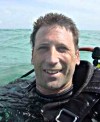
Diego Lirman, Ph.D. (University of Miami RSMAS)
Associate Professor, Marine Biology and Fisheries
Bio: Diego Lirman is an Associate Professor in the Marine Biology and Fisheries Division of the University of Miami’s Rosenstiel School of Marine and Atmospheric Science. His research emphasis is on the disturbance ecology and resilience of coastal ecosystems and communities. Over the past 19 years, Dr. Lirman has worked on diverse projects to: (1) evaluate the health of seagrasses, macroalgae, and coral reef communities; (2) estimate the impacts of multiple human and natural stressors on these susceptible natural resources; (3) predict the potential impacts of future disturbances on these systems; (4) discern physiological mechanisms that enhance ecosystem resilience; and (5) develop novel survey and monitoring tools. More recently, his research has expanded onto the field of restoration ecology where he has concentrated on the biological restoration of threatened coral species and reef habitats. He is presently the scientific leader of a regional reef restoration program centered in the Caribbean, with active restoration projects in the Dominican Republic and Honduras. His research approach combines field monitoring, laboratory experiments, and ecological modeling to document present-day condition of critical ecosystem attributes and develop simulation scenarios to forecast the potential impacts of human and natural disturbances on ecosystem resilience.
Website
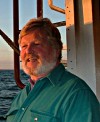
Eric May, Ph.D. (University of Maryland Eastern Shore)
Professor, Fish Biology and Pathology
Bio: Dr. May’s research interests are the use of biochemical and metabolic indicators to determine the response of fish to injurious agents or conditions, establishment of clinical methods as a means of non-lethal testing of wild and cultured stocks, the effects of environmental damage on resident aquatic organisms and application of fish health management approaches for use in aquaculture and wild stocks. Dr. May received his Ph.D from Oregon State University in Biochemistry, Pathology and Microbiology. He also completed his B.S. in Zoology at OSU, with a minor in fisheries. His M.S. from Northern Arizona University was in Cell Biology and Parasitology.
Website
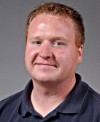
Dennis McIntosh Ph.D. (Delaware State University)
Associate Research Professor & Extension Specialist – Aquaculture
Bio: Throughout his professional career, Dr. McIntosh has endeavored to reduce aquaculture’s impact on the environment, believing that a thriving aquaculture industry depends upon our resolve to create the smallest environmental footprint possible. Specifically, his goals are to continue to strengthen and support the aquaculture industry by conducting applied aquaculture research and to share this new information with producers to enhance the industry and its products. Beyond assisting producers, Dennis feels it is important to educate and train students about the theories, concepts, and procedures of aquaculture, because today’s aquaculture students are tomorrow’s aquaculture producers and consumers.
Curriculum Vitae
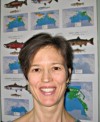
Jessica Miller, Ph.D. (Oregon State University)
Associate Professor and LMRCSC Project Director, OSU
Bio: Dr. Miller is an Associate Professor at Oregon State University in the Department of Fisheries and Wildlife and is a member of the Coastal Oregon Marine Experiment Station. She has over 15 years of experience in the early life history of marine and anadromous fishes. Her research combines various methodologies, including otolith chemical and structural, genetic, and time-series analyses, to provide novel information on the life histories of fishes. Her current research projects are focused on identifying mechanisms regulating early ocean survival in Chinook salmon (Oncorhynchus tshawytscha) and examining larval source contribution and patterns of dispersal in Pacific cod (Gadus macrocephalus).
Website
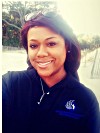
Jolvan Morris, Ph.D.
Post-doctoral fellow at Savannah State University
Bio: Dr. Jolvan Morris earned her M.S. degree and Ph.D. in Environmental Science from Florida A&M University. Her master’s thesis focused on evaluating the biological and sociological issues surrounding the management of protected sturgeon species under the Endangered Species Act. Her Ph.D. research used socio-environmental synthesis to address compliance, participation, and environmental justice issues in the Gulf of Mexico shrimp fishery. Dr. Morris’ current work focuses on the social impacts of fisheries and fishing in coastal communities along the Gullah Geechee heritage corridor in the Southeastern United States. Like other natural places, coastal landscapes house stories, values, and social relations that are key to the survival of cultural identities connected to ocean resources. This work incorporates multi-methodological approaches to study sociocultural place and environmental attachment and traditional ecological knowledge.
Curriculum Vitae

Gulnihal Ozbay, Ph.D. (Delaware State University)
Research Professor, Natural Resources
Bio: Dr. Ozbay’s research and outreach education programs focus on habitat restoration via oyster revitalization and restoration in critical estuaries in Delaware’s Bays. Her research identifies environmental stressors and relationships between water quality and naturally occurring bacteria that could be potentially harmful to either aquatic species or humans. In addition, she studies cellular response and population structures of several harmful algal species in Delaware waters as a result of changes in temperature, carbon dioxide, nutrients, and other changes associated with climate change phenomena. For her outreach goals, she plans to offer drinking water quality clinics and public seminars to discuss potential issues with private wells and potential water treatments and expand community outreach oyster gardening program for habitat restoration. In an attempt to enhance the oyster populations and improve water quality conditions in Delaware, the Center for Inland Bays, the Delaware Sea Grant Marine Advisory Program, and Delaware State University have been collaborating on an oyster gardening restoration program. A variety of culturing techniques, including subtidal modified rack and bag aquaculture, oyster cages, Taylor floats, and created oyster reefs, have been used to investigate ecological and biological impacts of these efforts. She is looking at population structure and spat recruitment in and around oyster beds in Delaware Bay and rip-rap planting of rocks along the canals and oyster gardening program driven by the residents of Sussex County in Delaware.
Curriculum Vitae
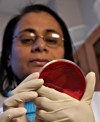
Salina Parveen, Ph.D. (University of Maryland Eastern Shore)
Professor, Food and Environmental Microbiology; Seafood Safety
Bio: Dr. Parveen holds a B.S. in Botany and an M.S. in Microbiology from the University of Dhaka, Bangladesh and a Ph.D. in Food Science and Human Nutrition, specializing in Microbiology and Molecular Biology from the University of Florida, FL. She teaches graduate level courses in Microbiology and Toxicology. Her research interests are Food and Environmental Microbiology, Food Safety, and Water Quality. Dr. Parveen has received several awards including Chancellor Award, Govt. of Bangladesh, and Book Award, Dhaka University, for securing first class position in B.S, Dhaka University merit scholarship for outstanding achievement in undergraduate and graduate studies, and outstanding new faculty award, School of Agricultural and Natural Sciences, UMES. In addition, she served as an invited review panelist for NOAA/UNH, USDA and Water quality and Health Bureau, Health Canada. Furthermore, she serves on the editorial board of the peer-reviewed journal, Infection and Drug Resistance. Currently, she is serving as major advisor of six doctoral and two masters’ students and one research specialist. Dr. Parveen’s students have received several awards and scholarships for their outstanding academic performance.
Curriculum Vitae
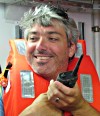
Jamie Pierson, Ph.D. (University of Maryland Center for Environmental Science Horn Point Laboratory)
Assistant Research Professor, Zooplankton Ecology
Bio: Dr. Jamie Pierson is a biological oceanographer whose primary interest is in marine and estuarine zooplankton dynamics. Zooplankton represent an important link between primary producers (algae) and higher trophic levels, such as commercially and ecologically important fish species. His work seeks to understand how individual behaviors and the variability among individuals in a population affect population dynamics, using a combination of field observations and numerical computer models. Dr. Pierson’s NSF and NOAA funded projects have taken him from the upper Chesapeake Bay, to Puget Sound, and the Gulf of Mexico, and addressed such large scale questions as biodiversity and climate change.
Website

Joseph Pitula, Ph.D. (University of Maryland Eastern Shore)
Associate Professor, Parasitology, Molecular Biology
Bio: Dr. Pitula’s research interests focus on disease-causing protozoan parasites. His current projects are devoted to studying marine parasites of both blue crabs and oysters, two vital food resources essential to the economic health of the Chesapeake Bay region. These projects aim to 1) develop diagnostic methods to understand disease transmission 2) understand ecological considerations of parasite life cycles and communities, and 3) study the basic biochemical and genetic pathways functioning in both host and parasite. In addition, his laboratory studies Leishmania sp., a protozoan parasite of animals, using a lizard parasite species, Leishmania tarentolae, as a model for the human pathogen. In humans, Leishmaniasis is the second most deadly parasitic protozoan disease, second only to malaria. Dr. Pitula’s research seeks to identify and characterize: 1) a Leishmania sp. enzyme that participates in generating sugars during parasitism of host immune cells and 2) pathways leading to the production of ribosomes in these organisms. Understanding biochemical and genetic mechanisms essential to parasite survival are theorized to assist in rational drug design approaches, so as to combat human disease.
Website

Allen R. Place, Ph.D. (University of Maryland Center for Environmental Science)
Professor, Institute of Marine and Environmental Technology
Bio: Dr. Place received his Ph.D in Biochemistry from Johns Hopkins University in 1979. He studies the molecular mechanisms that permit organisms to adapt to unique diets, environments, and interactions (symbiosis). He has developed plant based diets for cobia and other fish. He has developed sophisticated technologies to identify and monitor distinct populations of blue crabs, monkfish and striped bass using genetic markers. He identified the dinoflagellate Karlodinium veneficum as the toxin producing organism responsible for fish kills in the Chesapeake Bay. Dr Place has identified the toxin responsible, and works with state agencies to make accurate assessments of algal species and toxins crucial to an understanding of human health risks. His work on the unusual genomes of dinoflagellates is expanding our understanding of harmful algal blooms and their production of toxins.
Website
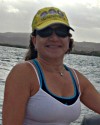
Áurea E. Rodríguez-Santiago, Ph.D. (Hampton University)
Research Assistant Professor
Bio: Dr. Rodriguez is a graduate of the University of Puerto Rico-Mayaguez where she received a BS in Industrial Microbiology, a MS in Marine Science (Biological Oceanography) and a PhD in Marine Science (Biological Oceanography). Her research focuses on Zooplankton Ecology with emphasis in larval forms. She has vast experience in assessment and biological monitoring of zooplankton entrained and associated to thermoelectric power plants. For 15 years her work has focused on molecular identification of icthyoplankton, meroplankton, as well as in phylogenetics of fishes within the Lujanidae family (Snappers). Her current research includes the Assessment of Zooplankton and Ichthyoplankton biodiversity in the James River – Hampton Roads estuaries. She is currently a Research Assistant Professor in the Living Marine Cooperative Science Center program at Hampton University.
Website
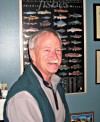
David Sampson, Ph.D. (Oregon State University)
Professor, Fisheries
Bio: Dr. Sampson’s research focuses on two main topics: (1) improving stock assessments so they provide more accurate estimates and (2) development of bio-economic models to better understand and predict the dynamics of fishery systems (fish stocks plus fishing fleets). There are inherent uncertainties in the stock assessment estimates that underpin the annual catch quotas on which management usually relies. The best way to reduce this uncertainty remains unclear however. Imprecise data, incorrect relative emphasis of different data sources, and incorrect specifications of underlying model structure all contribute to the uncertainty. Dr. Sampson applies stock assessment techniques to simulated data sets, generated to have known properties, and compares the assessment estimates with the known true values, thereby quantifying stock assessment errors and the relative contributions of different sources. This method provides an objective basis for evaluating the potential of different approaches to improve stock assessments. With regard to bio-economic modeling, there is a general need to evaluate the biological and economic performance of different kinds of fishery harvest control rules and management plans. Many of the current approaches for conducting so-called management strategy evaluations make unrealistic assumptions about the reactions of fishers to changing conditions (e.g., that fishing mortality and catches follow prescribed rules). Dr. Sampson is developing more realistic methods for modeling the behavior of fishermen, particularly with regard to the fishers’ choice of fishing locations, the mix of species that they harvest, and the types of gear they deploy.
Website
Eric Schott, Ph.D. (University of Maryland Center for Environmental Science)
Assistant Professor, Institute of Marine and Environmental Technology
Bio: Dr. Schott earned a B.A. at Reed College in Portland, Oregon, and a Ph.D. in genetics at Harvard Medical School in Boston. His interests and expertise include the discovery and study of marine pathogens and the health and disease of aquatic invertebrates, particularly the eastern oyster and blue crab. Diseases may play a significant role in shaping populations of marine species, but assessing the prevalence and effects of disease in wild populations of aquatic species has been historically difficult. Molecular and biotechnological tools now make it more feasible to ask what roles specific diseases have on populations of fish, shellfish and crustaceans. Dr. Schott’s students are currently using genome-targeted methods to study the dynamics of protozoan and viral pathogens of crabs in the context of climate change and the fishing industry, and investigating the effects of toxic algae on the immune system of blue crab. Dr. Schott serves on the MD Oyster Advisory Commission and participates in state legislative testimony related to Chesapeake Bay issues. He collaborates with scientists at several NOAA offices, as well as with state resource managers in MD, DE, FL and MA.
Website
Margaret Sexton, Ph.D. (University of Maryland Eastern Shore)
Research Assistant Professor of Marine Biology
Bio: Dr. Maggie Sexton received a B.S. degree in Marine Science and Biology from Coastal Carolina University in 2003 and a Ph.D. in Marine, Estuarine, and Environmental Science from the University of Maryland in 2012. Her dissertation research, conducted at the Horn Point Laboratory, sought to characterize inter-annual and intra-annual variability in the abundance of the sea nettle Chrysaora quinquecirrha in Chesapeake Bay and the environmental conditions that cause this variability. She joined the LMRCSC in 2013. Her current research interests include the biology and ecology of gelatinous zooplankton in the Chesapeake Bay and Maryland Coastal Bays, particularly the early life stages of C. quinquecirrha.
Curriculum Vitae
Stacy Smith, Ph.D. (Delaware State University)
Senior Research Scientist and LMRCSC Project Director, DSU
Bio: Dr. Stacy Smith is a chemical oceanographer/chemist. She received her B.A. from Virginia Polytechnic Institute and State University (Virginia Tech), her M.S. from University of New Mexico and her Ph.D. from University of Alaska Fairbanks. Her research focuses on the impacts of human activities on estuaries, the coastal and marine environments and their living marine resources. Coastal areas are vulnerable to environmental factors such as encroaching development, sea level rise, dredging and dredge spoil, pollution and nutrient loading. These stressors can dramatically degrade water quality, cause eutrophication, increase turbidity and hypoxia/anoxia, thereby decreasing available essential fish habitat. Dr. Smith’s current projects address the impact of ocean acidification on fish otolith growth and fish behavior. She is also investigating nutrient loading and climate change effects on estuaries through monitoring of nutrient levels, pH, alkalinity, and dissolved inorganic and organic carbon. The role PCBs and chemical contaminants play in Delaware Bay fish and shellfish health is also of interest to her.
Gil Sylvia, Ph.D. (Oregon State University)
Associate Professor, Fisheries and Wildlife
Bio: Dr. Sylvia’s research program focuses on bio-economics and seafood marketing research that contributes to improved marine resource, fishery, and aqua cultural management and policy. The bio-economic work integrates the biological and ecological dynamics of west coast, national, and international fisheries (e.g., groundfish, salmon, crab, tuna) under alternative institutions to improve approaches for achieving multi-objective management approaches. Aquaculture research focuses on integrated bio-economic models to improve production methods, manage externalities, determine site location, and optimize breeding strategies. Recent work in understanding ecosystem services associated with community-based marine protected areas uses integrated spatial models for linking ecosystems with economic objectives of marine spatial areas. Seafood marketing work evaluates the economic value of information systems for integrating harvest strategies, product quality, management, and marketing. All research is highly interdisciplinary and provides significant opportunities for students to develop programs that integrate biology, ecology, economics, management, marketing, and food science.
Website
Shari Wiley, Ph.D. (Hampton University)
Assistant Professor, Applied Mathematics
Bio: Dr. Shari Wiley joined Hampton University’s mathematics department as an Assistant Professor in August 2011. She earned a Ph.D in mathematics from Howard University in July of 2010 and a B.S in mathematics from the University of Arkansas at Pine Bluff in 2002. Dr. Wiley’s research interests include dynamical systems, ecological modeling, and curve fitting. Her recent work focuses on understanding the impacts of complex species interactions and harvesting on the viability of several economically important commercial fish populations in the Georges Bank and Gulf of Maine food chains.
Website
Meng Xia, Ph.D. (University of Maryland Eastern Shore)
Associate Professor, Oceanography
Bio: The addition of Dr. Meng Xia, who joined UMES in 2011, greatly strengthens the marine science expertise within the Department of Natural Sciences. A physical oceanographer by training, Dr. Xia received his Ph.D from North Carolina State University in 2007 and his M.S. degree from First Institute of Oceanography in China in 2002. Before coming to UMES, he served as Research Investigator in the Cooperative Institute of Limnology and Ecosystems Research at University of Michigan. Dr. Xia’s research interests focus on estuarine and coastal dynamics, specifically river plume and estuary dynamics, larval transport processes, TMDL modeling, watershed modeling, wave current dynamics and sediment transport processes.
Curriculum Vitae
Website
Staff
LMRCSC Staff
Anne Dudley, Communication and Outreach Specialist
Ph: (410) 651-6196
Email: acdudley@umes.edu
Ida Tilghman
Ph: (410) 651-7870
Email: imtilghman@umes.edu
Onjalé Scott, Geosciences Programs Coordinator
Ph: (410) 621-2270
Email: obscott@umes.edu
Students
Doctoral Students funded by the FY 2011 award
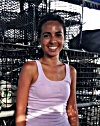
Laura Almodóvar-Acevedo (UMES, Ph.D.)
Marine, Estuarine and Environmental Science
Bio: Laura Almodóvar-Acevedo received a bachelor’s degree in Biology from the University of Puerto Rico, Mayagüez Campus. She’s currently a Ph.D. student at the University of Maryland Eastern Shore and is specializing in Ecology as part of the Marine-Estuarine-Environmental Science program. Her research focuses on black sea bass dynamics in the Chesapeake Bay. Under the advisement of Dr. Brad Stevens and Dr. Howard Townsend, she is working on a habitat suitability model to investigate if the historical decline in black sea bass landings is associated with a decrease in available habitat. The ultimate goal of their work is to develop an Estuarine Habitat Affinity Index that can be incorporated into a stock assessment model to explain some variability in black sea bass juvenile recruitment.
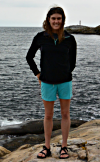
Caren Barceló (OSU, Ph.D.)
Fisheries Science
Bio: Caren Barceló was born Montevideo, Uruguay and grew up on the along the California coast. She holds a B.S. in Ecology and Evolutionary Biology from UC Santa Cruz and a M.S. in Fisheries Science from OSU. Currently, she is a Ph.D. candidate in Oceanography at OSU studying the dynamics of marine fish distributions and assemblages in response to local and basin scale environmental variability. She is working with OSU’s Dr. Leigh Torres and NOAA scientist Dr. Ric Brodeur on a project aimed at understanding the distribution and overlap patterns of sea lions and their forage base along the Northeastern Pacific Ocean under various temporal and climate change scenarios.
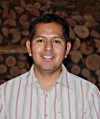
Smit Vasquez Caballero (OSU, Ph.D.)
Applied Economics
Bio: Smit Vasquez Caballero studied economics at the National Autonomous University of Mexico (UNAM), and Rural Sociology at the Institute for Sociological Research in Oaxaca, Mexico. He has a B.S. degree in Economics from Southern Oregon University and a M.S. degree in Agricultural and Resource Economics from Oregon State University. Currently, Smit is a Ph.D. student in Applied Economics at Oregon State University. His research is in resource and development economics with a special focus on common property natural resource management and governance. Currently he is working on a bio economic analysis of Pacific salmon stocks and expects to graduate in June 2015. Smit and his wife, Marie Uhtoff,have three children: Lena, Luis and Leo.
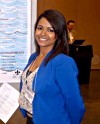
Wilmelie Cruz-Marrero (UMES, Ph.D.)
Marine, Estuarine and Environmental Science
Bio: Wilmelie Cruz is currently a graduate student in the UMES MEES program. She is advised by Dr. Bradley Stevens. Her research focus is offshore wind sites, doing a benthic habitat assessment of the Maryland coast using video technology. She completed her bachelor’s degree from University of Puerto Rico, Humacao Campus. As an undergraduate Wilmelie was part of a fellowship with SCDNR working with effects of an invasive species in Charleston, SC. She is interested in fisheries management, invasive species and effects of humans in coastal ecosystems.

Chante Davis (OSU, Ph.D.)
Fisheries Science
Bio: Chante is originally from California, where she completed her Bachelors and Masters degrees at CSU Monterey Bay and Moss Landing Marine Laboratories. Her previous research involved understanding the life history of elasmobranchs and focused on reproduction, age and growth of a deep-sea skate. She is currently adding genetic tools to her research repertoire. She is interested in the ecology, genetic diversity and evolution of life history traits and how these factors shape population structure and growth. She is analyzing the functional genetic diversity of Chinook salmon in the Pacific Northwest and will describe how landscape features influence the spatial and temporal distribution of populations.
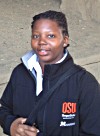
LaTreese Denson
Marine Biology and Fisheries
LaTreese Denson is from Queens, New York. She received her B.S. from North Carolina State University in Biological Oceanography in 2010. She received an M.S. in Fisheries Science from Oregon State University. Her Masters research explored the impacts of various factors on stock assessment results: environmentally driven spatial structure in recruitment distribution, the use of fishery-independent data (e.g., nearshore surveys and environmental index to support recruitment trends) and model spatial structure. She is currently a graduate student in the Marine Biology and Fisheries Department at UM RSMAS. LaTreese is advised by Dr. Elizabeth Babcock and is interested in exploring the impact of the environment on fish population dynamics, and our attempts to manage these populations.
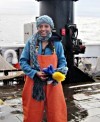
Rehab El Fadul (UMES, Ph.D.)
Marine, Estuarine and Environmental Science
Bio: Rehab graduated from Sudan University of Science and Technology (SUST) with a B.S. in Chemistry and received her M.S. degree in Chemistry from UMES before joining LMRCSC in 2009. Co-advised by Dr. Ali Ishaque and Dr. Joseph Okoh, her research focuses on the analysis of Contaminants of Emerging Concerns (CECs) in the Maryland Coastal Bays (MCBs). Specifically, she is using vitellogenin (vtg) as a biomarker for contaminant exposure in summer flounder (Paralichthys dentatus) and spot (Leiostomus xanthurus). She expects to graduate in May of 2013.
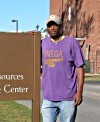
Eric Evans (UMES, Ph.D.)
Marine, Estuarine and Environmental Science
Bio: Eric joined LMRCSC in August, 2009 after completing his Masters degree in Environmental Science from Jackson State University in May. His Masters research examined the effects of hurricane Katrina on the biodiversity of Grand Bay Estuarine Research Reserve using GIS and remote sensing. He has also conducted research on the nutritional status and predation on sea urchins in California and on cyanobacteria in Kaneohe Bay, HI. Eric’s current research focuses on the population ecology and dynamics of bay anchovy, an important forage species in the Maryland Coastal Bays.
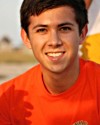
Matthew Ramirez (OSU, Ph.D.)
Fisheries Science
Bio: Matthew received his B.S. in Zoology from Auburn University in 2011. After graduating he worked for both the Bald Head Island Conservancy in North Carolina and the Conservancy of Southwest Florida where he assisted in monitoring beaches for sea Turtles nesting activity. Under the direction of Dr. Selina Heppell, Matthew is analyzing variation in sea turtle foraging, ecology, growth and various other life history parameters, and is investigating potential effects on sea turtle population dynamics. This information may then be used to improve stock assessment models for sea turtles.
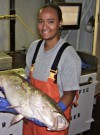
Jhamyllia Rice (UMES, Ph.D.)
Marine, Estuarine and Environmental Science
Bio: Jhamyllia’s primary interests are in toxicology and pathology as well as distribution and some aspects of histology of marine mammals. Her research focuses on Polychlorinated Biphenyl (PCB) accumulation in Gray Seals and the potential utility of scat as a means of determining exposure. Following graduation, Jhamyllia would like to continue her work on marine mammals as a researcher with NOAA and to eventually enter academia. Jhamyllia is co-advised by Dr. Eric May (UMES) and Dr. Gordon Waring (NOAA NEFSC).
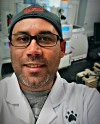
Jorge J. Rodriguez (UMES, Ph.D.)
Marine Estuarine and Environmental Science
Bio: Jorge J. Rodriguez received a Bachelor of Science degree in Agronomy from the University of Puerto Rico, Mayaguez Campus. Prior to entering the Doctor of Philosophy program, he successfully completed a Master of Science degree in Food and Agricultural Sciences in the University of Maryland Eastern Shore (UMES). Currently he is a Ph.D. student at UMES in the Marine Estuarine Environmental Sciences (MEES) program specializing in Environmental Molecular Biology/Biotechnology. His research focuses in host-pathogen interactions in the blue mussel. Under the advisement of Dr. Anthony K. Nyame and Dr. April Croxton he is investigating the potential role of glycans in host-pathogen interactions. The ultimate goal of their work is to establish molecular markers that can be used to assess the blue mussels susceptibility to infectivity by pathogens and how these markers may be affected by environmental stressors.
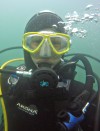
Cara Schweitzer (Ph.D., UMES)
Marine Science
Bio: Cara received her B.S. in Biology at The University of Missouri – St. Louis. There she researched behavioral sexual selection in the live breeding fish, poecilia parae and the electrosensory pathway of the dorsal octavolateral nucleus (DON) within the paddlefish brain. Cara completed an M.S. in Biology at Washington University with an emphasis in circadian rhythms in mouse model. Currently, she has joined the MEES program at UMES. Her research aims to understand how habitat complexity and health influence fish abundance and recruitment within the Mid-Atlantic Bight by using sea whips as a health bio-indicator and black sea bass for abundance predictor. Cara is also investigating how the commercial trap fishing industry affects habitat integrity and juvenile abundance and survival. Her research is conducted under the supervision of Dr. Bradley Stevens.
Master’s Students funded by the FY 2011 award
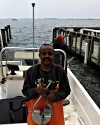
Abdalhafiz Ahemedaltayb (UMES, M.S.)
Marine, Estuarine and Environmental Science
Bio: Hafiz completed his B.Sc. degree in chemistry and botany from University of Khartoum (Sudan). In 2012, he enrolled in UMES’s graduate program in toxicology. Prior to enrolling at UMES , Hafiz worked at the Sudanese Standard and Metrology Organization in Sudan. Currently his research is focused on the detection and quantification of trace metals and polychlorinated biphenyl (PCBs) and trybutyltin (TBT) in blue crabs (Callinectes sapidus), water and sediments in the Maryland Coastal Bays and its many dead end canals under the supervision of Drs. Paulinus Chigbu and Dia-Elnaim.
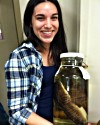
Jessica Andrade (OSU, M.S.)
Fisheries Science
Bio: Jessica graduated from the University of San Diego (USD) with a B.A. in marine science and an emphasis in biology. At USD she gained research experience as a Ronald E. McNair Post-baccalaureate Achievement Program Scholar examining California killifish growth using otoliths. Currently, Jessica is a first year Master’s student and she and her advisors are developing a research project that aims to determine how ocean acidification affects northern rock sole behavior.

Susan Kelly (UMES, P.S.M.)
Quantitative Fisheries
Bio: Susan entered the Professional Science Masters program, with a focus on Quantitative Fisheries, in 2012. In the course of teaching high school physics, environmental science and science research, she became engaged in marine population research while helping scientists develop educational activities for secondary students. Susan is interested in investigating the impact of climate regime shifts on fisheries, as well as efforts to identify and mitigate changes in abundance and distribution. With these interests in mind, she pursued a summer internship at NOAA Oxford Cooperative Laboratory. Susan is eager to apply her background in education and curriculum writing towards the development of activities that will help communicate contemporary issues in fisheries management. The research experience and scientific methodology incorporated in the Professional Science Masters program will support this effort and complement her Masters in Education from City University of New York and undergraduate degree from Columbia University.
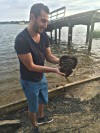
Keith Leonard (DSU, M.S.)
Natural Resources
Bio: Keith received his B.S. in Marine and Environmental Biology and Policy from Monmouth University in 2013. As an undergraduate, Keith researched the distribution and abundance of macrozooplankton in New Jersey’s Barnegat Bay. He also studied bonefish feeding ecology and the infaunal macroinvertebrate communities in the intertidal sand flats of Eleuthera, The Bahamas. Keith is currently a graduate student in the Delaware State University Natural Resources Program under the guidance of Dr. Stacy Smith and Dr. Gulnihal Ozbay. His current research focuses on the effects of ocean acidification on larval fish behavior.

Natalia B. López-Figueroa (HU, M.S.)
Marine, Estuarine Environmental Science
Bio: Natalia B. López-Figueroa obtained her Bachelor’s degree in Natural Sciences with a major in Coastal Marine Biology from the University of Puerto Rico at Humacao. As an undergraduate, she conducted a four-year research project with Texas A&M where she used stable isotope hydrology to predict the impacts of climate change at the Humacao Natural Reserve. Currently, Natalia is a graduate student at Hampton University pursuing a master’s degree in Biology with a concentration in Environmental Science. Her research focuses on the cryptic diet of the globally significant pelagic tunicate Dolioleta gegenbauri, a project under the advisement of Dr. Deidre Gibson. The ultimate goal is to determine how selective is the doliolid diet and testing the “Exogut” hypothesis.
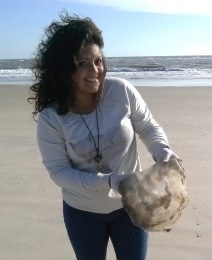
Stephanie Martinez-Rivera (UMES, M.S.)
Marine, Estuarine Environmental Science
Bio: Stephanie received her B.S. in Coastal Marine Biology in 2012 from the University of Puerto Rico, Humacao Campus. She joined the LMRCSC in January 2014 under the advisement of Dr. Bradley Stevens. Her research focuses on reproductive biology and histology of deep-sea red crabs (Chaceon quinquedens). Stephanie’s research interests are in fisheries management, ecology and population dynamics of crustaceans.
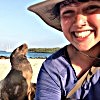
Noelle Olsen (UMES, M.S.)
Marine, Estuarine and Environmental Science
Bio: Noelle Olsen is a Southern California transplant who received her B.A. in 2013 from Boston University, majoring in ecology and conservation biology and minoring in marine science. After graduating, she participated in a marine mammal research internship with Whale and Dolphin Conservation (WDC) based out of Plymouth, MA. Noelle joined the LMRCSC in 2015 under the supervision of Bradley Stevens. She is a master’s student enrolled in the University System of Maryland’s Marine Estuarine Environmental Science (MEES) program with a specialization in fisheries science. She will investigate the size at maturity and reproductive biology of the Jonah crab, Cancer borealis, in the Mid Atlantic Bight. Noelle is also interested in examining the practice and consequences of declawing Jonah crabs.
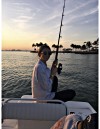
Chiara Pacini (RSMAS, M.S.)
Marine Ecosystems and Society
Bio: Pacini earned Bachelor’s of Science degree in Biochemistry from Northeastern University in Boston, MA in 2013. Also received a Graduate Certificate in Forensic Science in 2014 from Florida International University. Then started my Masters in Marine Ecosystems and Society at RSMAS in August of 2014. She is currently focused on estimating and validating age and growth rates of juvenile snowy groupers, young of the year, from daily rings observable in fish otoliths. Achieving an understanding of their growth rates is crucial in order to properly assess, manage, and sustain the fishery as a whole. Pacini is advised by David Die, Ph.D.

André L. Price (UMES, M.S.)
Bio: André received his B.S. in Marine Environmental Science, with a GIS minor, from Elizabeth City State University in 2015. He joined the LMRCSC in 2016 under the advisement of Dr. Brad Stevens and will be researching feeding dynamics of black sea bass.

Chelsea Richardson (UMES, M.S.)
Marine, Estuarine and Environmental Science
Bio: While taking part in the dual degree program, Chelsea received a B.S. in Biology from Salisbury University along with a B.S. in Environmental Science from UMES. As an undergraduate, she worked as an LMRCSC lab assistant with Dr. Ali Ishaque and his Ph.D. student Rehab El Fadul, where she analyzed contaminants of emerging concern in Maryland Coastal Bays, in addition to using vitellogenin as a biomarker for exposure to estrogenic compounds. Currently, she is in the beginning stages of her master’s research with her advisor Dr. Ishaque, which will focus on the assessment of trophic interactions and dynamics in the Maryland Coastal Bays ecosystem using stable isotopes, fatty acid biomarkers and gut content analysis.

Alexandra Salcedo-Bauzá (HU, M.S.)
Marine, Estuarine and Environmental Science
Bio: Alexandra Salcedo-Bauzá received her B.S. in Biology from the University of Puerto Rico, Rio Piedras Campus. As an undergraduate, she participated in University of Notre Dame’s 2013 Practicum in Field Environmental Biology Program where she conducted research on the effect of DOC levels on aquatic insect growth, distribution and emergence pattern. Alexandra joined LMRCSC in 2015 and is currently pursuing her M.S. Degree in Biology with a concentration in Environmental Science at Hampton University. Under the advice of Dr. Áurea Rodriguez, her research focuses on applying molecular genetics techniques to conduct a biodiversity assessment of zooplankton and ichthyoplankton in the James River- Hampton Roads estuary. The long term objective is to provide a more accurate taxonomic database as reference for broad monitoring programs; vital for a better understanding and management of ecologically and commercially important species in the Hampton Roads estuary.

Cy’Anna Scott (UMES, M.S.)
Marine, Estuarine and Environmental Science
Bio: Originally from New Jersey, Cy’Anna Scott is currently a LMRCSC-MEES student under the advisement of Dr. Eric May at the University of Maryland Eastern Shore, specializing in Ecology. She received her bachelor’s degree in Environmental Science with a concentration in marine biology at the University of Maryland Eastern Shore in 2012. Her current research focuses on understanding the mobilization of organic contaminants such as chlorinated hydrocarbons and the degree to which elasmobranchs are exposed in the marine environment. Through collection of tissue samples, she hopes to develop a model of the relationship between diet and liver concentrations and liver and muscle concentrations. Her primary interest focus on marine mammal biology, environmental toxicology, and coastal conservation.
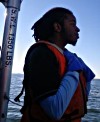
Justin Wilson (UMES, M.S.)
Fisheries Science
Bio: Justin graduated with a B.S. in Biology from Wilberforce University located in Wilberforce, Ohio in May 2012. He joined the LMRCSC in 2013, where he is now a M.S. student in the Marine, Estuarine and Environmental Science program, studying fisheries science. At the University of Maryland Eastern Shore he currently studies in Dr. Brad Stevens’ Lab and his research focuses on determining the age estimates of Deep-Sea Red Crab by growth ring analysis, as well as impacts of climate change on growth and age distribution.
Alumni
Doctoral Alumni from the FY 2001, 2006 and 2011 awards
Larry Alade
Ph.D., Univ. of Maryland Eastern Shore
Research Fishery Biologist
NOAA Northeast Fisheries Science Center
Ayeisha Brinson
Ph.D., University of Miami
Economist
NOAA Fisheries Service, Silver Spring, MD
Tedra Booker
Ph.D., University of Maryland Eastern Shore
Dan Cullen
Ph.D., University of Maryland Eastern Shore
Marine, Estuarine and Environmental Science
Jeannette Davis
Ph.D., UMCES Institute of Marine and Environmental Science
Knauss Fellowship, NOAA Seagrant
Will Gardner, Ph.D.
Ph.D., University of Maryland Eastern Shore
Kate Gillespie, Ph.D. has a joint degree from the University of Maryland, College Park and the University of Maryland Center for Environmental Science
Dwight Ebanks
Ph.D.,University of Miami Rosenstiel School of Marine and Atmospheric Science (RSMAS)
Instructor, Faculty Savannah State University
Lonnie Gonsalves
Ph.D., University of Maryland Eastern Shore
Research Fisheries Biologist
NOAA National Ocean Service
Kristin Kleisner
Ph.D., University of Miami
Post Doctoral Researcher
University of British Columbia
Dominique Lazarre
Ph.D. University of Miami
Faculty
Eckerd College
Marisa Litz
Ph.D., Oregon State University
Fisheries Biologist, Washington Department of Fish and Wildlife
Joel Llopiz
Ph.D., University of Miami
Assistant Scientist Biology
Woods Hole Oceanographic Institution
Anthony Overton
Ph.D., University of Maryland Eastern Shore
Professor and Chair of Biology
Alabama A&M University
Jose Reyes-Tomassini
Ph.D., UMCES Institute of Marine and Environmental Technology
Fisheries Biologist
NOAA Northwest Fisheries Science Center
Rolando Santos
Ph.D., University of Miami
Post-Doc
Florida International University
Xaymarra Serrano
Ph.D.,University of Miami Rosenstiel School of Marine and Atmospheric Science (RSMAS)
NRC Post-Doc at NOAA AOML
Adam Tulu
Ph.D., University of Maryland Eastern Shore
Environmental Protection Specialist
USDA/ Biotechnology Regulatory Service (BRS)
Riverdale, MD
Adjunct Professor of Bio-medical Sciences at Trinity Washington University
Jan Vicente
Ph.D., UMCES Institute of Marine and Environmental Technology
NSF Postdoctoral Research Fellowship
Aaron Watson
Ph.D., UMCES Institute of Marine and Environmental Technology
Assistant Marine Scientist, S. Carolina Department of Natural Resources, Marine Resources Institute, Charleston, SC
Master’s Alumni from the FY 2001, 2006 and 2011 awards
Derrick Alcott
P.S.M., Univ. of Maryland Eastern Shore
Ph.D. Student, University of Massachusetts, Amherst
Jaime Belanger
P.S. M. , Univ. of Maryland Eastern Shore
Program Manager, Sassafrass Environmental Education Management
Colette Cairns
M.S., Delaware State University
Analyst, Protected Species Division
NOAA Fisheries Service, Silver Spring, MD
Fishery Biologist- NOAA NMFS Endangered Species Act Interagency Coop Div
Jasmine Cousins
B.S., Hampton University
Commissioned Officer
Papahanumokuakea National Monument
LaTreese Denson
M.S., Oregon State University
Ph.D Student, University of Miami
Whitney Dyson
M.S, University of Maryland Eastern Shore
Sue Chaplin Ebanks, Ph.D.
M.S., Savannah State University
Instructor
Savannah State University
Elden Hawkes
M.S., University of Maryland Eastern Shore
SBIR Program Specialist
USDA, Natl Institute of Food and Agriculture
Noelle Hawthorne
M.S., Savannah State University
Cory Janiak
M.S., Delaware State University
Owner and Photographer-Ebb and Flow Photography
Lisia Kowalczyk
M.S., Savannah State University
Coastal Permit Coordinator Supervisor
GA Dept of Natural Resources
Environmental Policy Analyst, US Coast Guard
Dan Luers
M.S., University of Maryland Eastern Shore
Fishery Biologist, NOAA
JIMAR, Pacific Islands Fisheries Science Center
Hector Malagon
M.S., University of Maryland Eastern Shore
Environmental Protection Specialist
U.S. EPA, Office of Pollution Prevention and Toxics
Vivian Matter
M.A., University of Miami
Fishery Reporting Specialist
Sustainable Fisheries Division, NOAA Southeast Fisheries Science Center
Courtney McGeachy
M.S., University of Maryland Eastern Shore
Grants Administrator and Coordinator, Marine and Coastal Conservation Programs
National Fish and Wildlife Foundation, Washington, DC
Belita Nguluwe
M.S., University of Maryland Eastern Shore
Program Coordinator, BuildOn
Conversation Assistant, CAPS home to home
Josh Newhard
M.S., University of Maryland Eastern Shore
Fish Biologist, Fish Biologist-Snakehead program lead
US Fish and Wildlife Service
Leonard Pace
B.S., Hampton University
Science Assistant
Division of Ocean Science, National Science Foundation Science Program Manager, Schmidt Ocean Institute
Audy Peoples
M.S., University of Maryland Eastern Shore
Nivette-Perez-Perez
M.S., Delaware State University
Brian Reckenbeil
M.S., Delaware State University
Research Technician
Delaware State University
Biological Scientist, Florida Fish and Wildlife Conservation.
Larry Redd, Jr.
Environmental Science
Bio: Larry Redd, Jr. received his B.S. in Biology from Norfolk State University in 2006. He is currently a graduate student at Hampton University. His current research is in the area of aquaculture in which he is studying the gastric evacuation of juvenile pompano.
Candace Rodgers
M.S., University of Maryland Eastern Shore
Quality Assurance Supervisor, Private industry
Philip Simpson
M.S., Delaware State University
Program Supervisor and Project Leader
OR Department of Fish and Wildlife
Crystal Smith
M.S., Savannah State University
Kersey Sturdivant, Ph.D
B.S., University of Maryland Eastern Shore
Research Specialist
Cordell Bank National Marine
Principle Specialist, INSPIRE Environmental
Emily Tewes
M.S., University of Maryland Eastern Shore
Senior Analyst: ESA Consultations Biologist, NOAA NMFS-Office of Protected Resources
Andrea Stoneman
M.S., Delaware State University
Fish Observer
NOAA -National Marine Fisheries Service
Tiffany Ward
M.S., Savannah State University
Branson Williams
B.S., University of Maryland Eastern Shore
Fisheries Biologist
Maryland Department of Natural Resources


